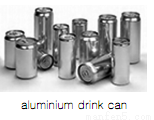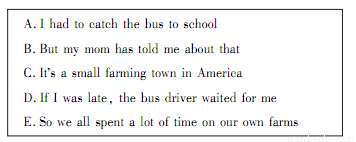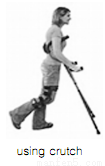
科目: 來源:北京市平谷區(qū)2017屆九年級(jí)6月模擬(二模)英語試卷 題型:閱讀理解
In 1996, Joe Richman had been working as a radio reporter on US national radio for several years and was looking for a new idea for a radio programme. He met a teenager called John Cutler. John had Tourette's Syndrome—a brain illness. This meant that Josh did not always have control of his movements and speech.
John was just beginning high school when he agreed to work with Joy on a story about his illness. Joe wanted John to keep a radio diary of his daily life. He gave John a tape recorder and asked him to record what happened to him every day. John and Joe agreed that an important part of his story would be talking to his school friends about Tourette's Syndrome. John was embarrassed(尷尬) to record at school—his friends might laugh.
One day, John took the tape recorder to school, but he kept it inside his bag all day. He was too afraid to bring it out. After months of feeling afraid, he took the tape recorder out on lunch time. What happened next was a total surprise. John tells it best:“Everyone jumped at the chance. Everyone started asking me questions about that, I had never really talking about it to anyone—except my mom and dad. ”
That was an important day in John's life because he learned to be more open about his condition. Now John says he wants to do radio diaries until he's 80 years old. He learnt a lot about himself by doing the radio diary. It made a great radio programme, too. Being a reporter is like having a passport. You can ask questions, be curious and explore new worlds. Radio is the perfect way to be on the radio and everyone likes to listen!
1.Who was Joe Richman?
A. John's teacher. B. A radio reporter.
C. John's doctor. D. One of John's classmates.
2.What did Joe want John to do?
A. To keep a radio diary of his daily life. B. To talk to his school friends.
C. To take the tape recorder to school. D. To control his movements and speech.
3.How did John's classmates feel when he recorded for the first time?
A. Afraid. B. Shy.
C. Excited. D. Strange.
4.What did John learn by doing the radio diary?
A. To be more open. B. A lot about himself.
C. To make more friends. D. Much about radio programme.
查看答案和解析>>
科目: 來源:北京市平谷區(qū)2017屆九年級(jí)6月模擬(二模)英語試卷 題型:閱讀理解
Do you think you're green? You're a totally modern citizen, aren't you? You keep your bottles and take them to the bottle bank. You have a black bin and a green bin, one for general waste and one for recyclable waste. Your car uses lead—free petrol. You use the same plastic bag every time you go to the supermarket. Maybe you even cycle to work from time to time. You are playing your part; you are green and environment-friendly. Well, I've got news for you:

YOU ARE NOT DOING ENOUGH!
If you don't believe me, look at these facts. Trust me, they're from a BBC website.
• On average every person in the UK throws away their own body weight in rubbish every seven weeks.
• Every year, the average dustbin contains enough unused energy for 500 hot baths, 3,500 hot showers or 5,000 hours of television.
• Every UK household produces over one tonne of rubbish every year.
• If all the aluminium drink cans sold in the UK were recycled, there would be 14 million fewer full dustbins per year.
• Just one recycled aluminium can saves enough energy to run a television for three hours!
• At Christmas over 83 square kilometres of wrapping paper is thrown in the bin.
• Almost three billion nappies (used for baby) are thrown away in the UK every year. 90% of these are buried and take hundreds of years to disappear.
Have I made you believe that you need to do more? No? OK, here are one or two more facts.
•Recycling just one plastic bottle saves enough energy to power a light bulb for six hours.
•Collecting dustbins and cleaning streets costs £1. 6 billion per year.
Surely you must believe me now. You need to do more. The good news is that there is some- thing else you can do.
1.How many ways are mentioned for being green in the first paragraph?
A. Three. B. Four. C. Five. D. Six.
2.Which of the following is True according to the passage?
A. People in the UK throw away rubbish every seven weeks.
B. Over one tonne of rubbish is produced by one family every year.
C. All the drink cans in the UK were recycled to run television.
D. 90% of nappies are buried in the UK and disappear soon.
3.What's the passage mainly about?
A. Behavior of being green. B. Ways to live recyclably.
C. Energy produced from rubbish. D. Facts of not being green enough.
4.What does the writer want to tell us?
A. To pay more for recycling. B. To do more to be green.
C. To save enough energy. D. To throw away less rubbish.
查看答案和解析>>
科目: 來源:北京市平谷區(qū)2017屆九年級(jí)6月模擬(二模)英語試卷 題型:閱讀理解
The human brain is divided into two sides, or hemispheres, called the right brain and the left brain. The two hemispheres work together, but each one specializes in certain ways of thinking.
Each side has its own way of using information to help us think, understand, and process informa-tion.The left side of the brain controls language. It is more verbal and logical. It names things and puts them into groups. It uses rules and likes ideas to be clear, logical, and orderly. It is best at speech, reading, writing, and math. You use this side of the brain when you memorize spelling and grammar rules or when you do a math problem.
The right side of the brain is more visual and creative. It specializes in using information it receives from the senses of sight, sound, smell, touch, and taste. This side of the brain likes to dream and experiment. It controls your appreciation of music, color, and art. You use this side when you draw a picture or listen to music.Although we all use both sides of our brains, one side is usually stronger or dominant. Some people are more “l(fā)eft-brained,” and others are more “right-brained”. Our dominant side influ-ences the kinds of jobs and hobbies we have. Politicians, artists, architects, and musicians depend on their right brains. Accountants, engineers, doctors, and lawyers usually rely on their left brains.
1.What can we know from the passage?
A. When we speak, we use right side of the brain.
B. Right side of the brain is stronger than left side.
C. We use right side of the brain to do a math problem.
D. Each side of the human brains work in its own way.
2.What does the underlined word “dominant” mean?
A. powerful B. heavy
C. smart D. young
3.Which of the following may be the best title of the passage?
A. The Human Brain, Fantastic Things.
B. We Have Both Sides of Our brains.
C. Is Your Right Brain Different from Your Left?
D. Do You Know Your Right Brain from Your Left?
查看答案和解析>>
科目: 來源:北京市平谷區(qū)2017屆九年級(jí)6月模擬(二模)英語試卷 題型:七選五
ERIC'S PAST LIFE
Hi Ben,
I was talking to my mom yesterday about when I was a baby. I remember lots of things about when I was small. I don't remember much about when I was a tiny baby. 1. . I haven't always lived in LA. I was born near Des Moines, Iowa. 2. . We lived with my grandpar-ents on their farm. It was in the middle of wheat fields. We moved to LA when my dad change jobs. I was eight years old. So my first school was in Des Moines, Iowa.3.. I had to stand on the road by our farm at 7 am and wait. If the bus was late, I waited for the bus. 4.! If I was sick, someone went down to the road to tell the driver I wasn't coming. A lot of the students came from farms. 5., and we also played happily with brothers and sisters. We soon made friends. It was good to be with kids of our own age. My best friend was Sam. He was very naughty! Were you naughty at school?
Eric

查看答案和解析>>
科目: 來源:北京市平谷區(qū)2017屆九年級(jí)6月模擬(二模)英語試卷 題型:任務(wù)型閱讀

The Special Olympics
The Olympics are some of the most exciting sports events in the world. But there is another Olympics about which you may not have heard. This is the Special Olympics, for people with mental disabilities.
The first Special Olympic Games were held in Chicago in 1968. One thousand people competed in many events. Since then Special Olympic programs have been organized in all 50 states and more than 150 countries. Today more than a million people take part in the Special Olympics.
Mentally disabled persons over the age of eight may take part in the Special Olympics. These people may also have physical disabilities. People have run in races using crutches or walkers. A young girl enter the long jump event with an artificial leg. A blind runner raced around the track with the help of his coach's voice. A deaf basketball team planned their plays using sign language.
Winning is wonderful for people who may never have had much success. But training for and entering the Special Olympics is also important. The participants become more confident. They learn how to concentrate in order to play well. Then they use that concentration in school to improve their schoolwork. Like anyone else they feel great when they prove they can do something well.
1.Were the first Special Olympic Games held in Chicago in 1968?
2.How many people take part in the Special Olympics today?
3.How did a blind runner raced around the track?
4.What did a deaf basketball team use when they planned their plays?
5.Why is training for and entering the Special Olympics important?
查看答案和解析>>
科目: 來源:北京市平谷區(qū)2017屆九年級(jí)6月模擬(二模)英語試卷 題型:書面表達(dá)
假如你是李華,恰逢P(guān)eter 來你校交流學(xué)習(xí),你打算邀請他參加“漢語詩詞朗誦/ Chines Poetry Reading”課外小組活動(dòng)?請用英文寫一封電子郵件,告訴他活動(dòng)的時(shí)間?地點(diǎn),簡要介紹一下你們的活動(dòng)以及你的感受?
提示詞語:activity, (Room 4, Monday afternoon) start, last, go over(revise), a piece of poetry, new, explain, aloud, feelings ……
提示問題:When and where do you have it?
What do you usually do in the group?
How do you feel?
Dear Peter,
How is it going? I' m writing to invite you to join our “ Chinese Poetry Reading” group.
I' looking forward to your early reply.
Yours,
Li Hua
查看答案和解析>>
科目: 來源:北京市平谷區(qū)2017屆九年級(jí)6月模擬(二模)英語試卷 題型:書面表達(dá)
你校《英語園地》正在以“Active Learning”為題征文,請你寫一篇文章投稿?談?wù)勀闵瞄L哪個(gè)學(xué)科,你如何幫助你同學(xué)學(xué)習(xí)的,為什么要幫助他/ 她?
提示詞語:English/ Chinese, maths ……, problem, explain, share, method ……
提示問題:
1.Which subject are you good at?
2.What do you do when your classmate needs your help with it?
3.Why do you help him/ her?
查看答案和解析>>
科目: 來源:四川省遂寧市市城區(qū)2016-2017學(xué)年七年級(jí)上學(xué)期教學(xué)水平監(jiān)測英語試卷 題型:單項(xiàng)填空
Look, there is ______ apple on the table.
A. a B. an C. the
查看答案和解析>>
科目: 來源:四川省遂寧市市城區(qū)2016-2017學(xué)年七年級(jí)上學(xué)期教學(xué)水平監(jiān)測英語試卷 題型:單項(xiàng)填空
----Bill, is this your ruler?
---- No, it isn’t. ______ is blue.
A. My B. His C. Mine
查看答案和解析>>
科目: 來源:四川省遂寧市市城區(qū)2016-2017學(xué)年七年級(jí)上學(xué)期教學(xué)水平監(jiān)測英語試卷 題型:單項(xiàng)填空
Cindy likes bananas, ______ she doesn’t like pears.
A. and B. because C. but
查看答案和解析>>
湖北省互聯(lián)網(wǎng)違法和不良信息舉報(bào)平臺(tái) | 網(wǎng)上有害信息舉報(bào)專區(qū) | 電信詐騙舉報(bào)專區(qū) | 涉歷史虛無主義有害信息舉報(bào)專區(qū) | 涉企侵權(quán)舉報(bào)專區(qū)
違法和不良信息舉報(bào)電話:027-86699610 舉報(bào)郵箱:58377363@163.com